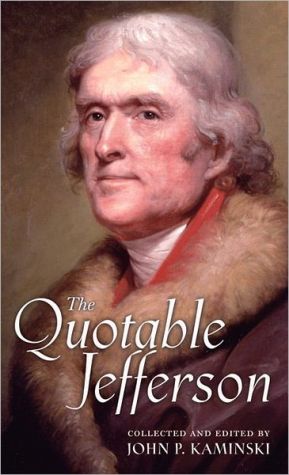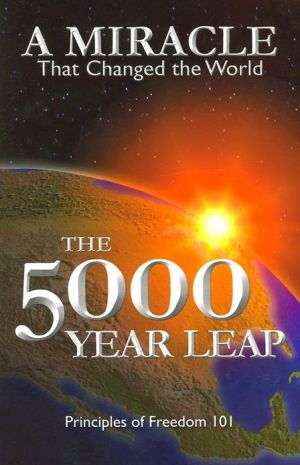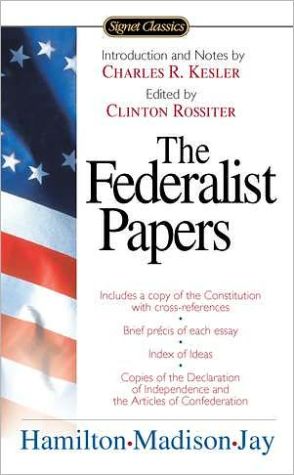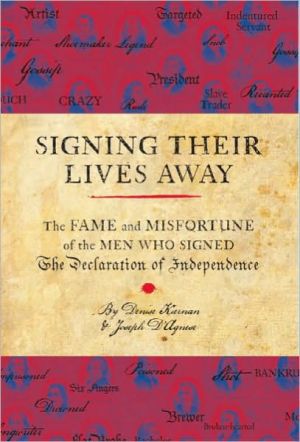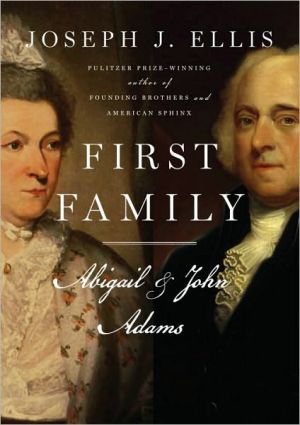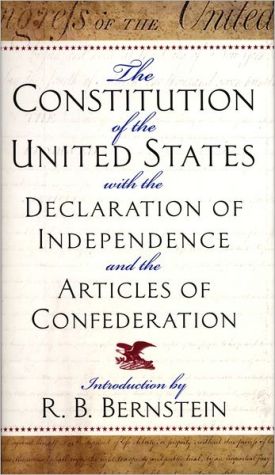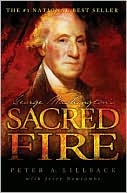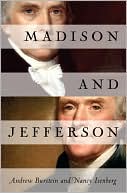The Quotable Jefferson
More than any other Founding Father, Thomas Jefferson made his reputation on the brilliance of his writing. John Adams chose the 33-year-old Jefferson to draft the Declaration of Independence largely because of his "masterly Pen." The genius of the Declaration and Jefferson's later writings amply confirmed Adams's judgment. Few writers have said so much on so many subjects—and said it so well—as Jefferson. The Quotable Jefferson—the most comprehensive and authoritative book of Jefferson...
Search in google:
"Succeeding admirably in condensing the best quotes from around twenty thousand letters, this book will awaken some readers to the wit and wisdom of Jefferson, and enable others to rediscover it. Here is Jefferson in his own words, without historians acting as intermediaries. It is very fortunate to have an editor of John Kaminski's caliber produce such an accessible and useful volume."--Andrew O'Shaughnessy, Saunders Director at the Robert H. Smith International Center for Jefferson Studies at Monticello, author of An Empire Divided"John P. Kaminski, whose impressive editorial work places him among the most knowledgeable scholars of the founding period, has selected a highly readable and insightful collection of observations by Thomas Jefferson. True to Jefferson's brilliance and probing intellect, Kaminski organizes these materials to suit the taste of the modern reader."--Whitman H. Ridgway, University of Maryland, author of Community Leadership in Maryland, 1790-1840 Mary Garrett - The Advocate If your family library contains no volume on Jefferson, John Kaminski's The Quotable Jefferson would be the perfect place to start. Every quotation is attributed to its source and it seems impossible that any reader who browses these pages would not be enticed to go more deeply into the life and history of Thomas Jefferson and in doing so, into the very heart of the nation of which he was so able a founder.
The Quotable Jefferson\ \ Princeton University Press\ Copyright © 2006 Princeton University Press\ All right reserved.\ ISBN: 0-691-12267-9 \ \ \ Chapter One\ Quotations\ THE THOUGHTS AND WORDS OF THOMAS JEFFERSON\ Advice\ You will perceive by my preaching that I am growing old: it is the privilege of years, and I am sure you will pardon it from the purity of its motives.\ To Thomas Mann Randolph, Jr., Paris, November 25, 1785\ The greatest favor which can be done me is the communication of the opinions of judicious men, of men who do not suffer their judgments to be biased by either interest or passions.\ To Chandler Price, Washington, February 28, 1807\ Your situation, thrown at such a distance from us, & alone, cannot but give us all great anxieties for you. As much has been secured for you, by your particular position and the acquaintance to which you have been recommended, as could be done towards shielding you from the dangers which surround you. But thrown on a wide world, among entire strangers, without a friend or guardian to advise, so young too, & with so little experience of mankind, your dangers are great, & still your safety must rest on yourself. A determination never to do what is wrong, prudence and good humor, will go far towards securing to you the estimation of the world.\ To Thomas Jefferson Randolph, Washington, November 24, 1808\ How easily we prescribe for others a cure for their difficulties,while we cannot cure our own.\ To John Adams, Monticello, January 22, 1821\ Adore God. Reverence and cherish your parents. Love your neighbor as yourself, and your country more than yourself. Be just. Be true. Murmur not at the ways of Providence.\ To Thomas Jefferson Smith, Monticello, February 21, 1825\ Consultation\ I have found in the course of our joint services that I think right when I think with you.\ To John Adams, Paris, July 7, 1785\ Setting an Example\ View, in those whom you see, patients to be cured of what is amiss by your example, encourage in them that simplicity which should be the ornament of their country; in fine, follow the dispositions of your own native benevolence & sweetness of temper, and you will be happy & make them so.\ To Madame de Bréhan, Paris, May 9, 1788\ I have ever deemed it more honorable, & more profitable too, to set a good example than to follow a bad one. The good opinion of mankind, like the lever of Archimedes, with the given fulcrum, moves the world.\ To José Correa da Serra, Monticello, December 27, 1814\ Suggestions\ Suggestion and fact are different things.\ To the Marquis de Lafayette, Monticello, August 4, 1781\ As I know from experience that profitable suggestions sometimes come from lookers on, they may be usefully tolerated, provided they do not pretend to the right of an answer.\ To Unknown, 1813\ Ten Canons for Practical Life\ Decalogue of Canons for Observation in Practical Life\ 1. Never put off till tomorrow what you can do today.\ 2. Never trouble another for what you can do yourself.\ 3. Never spend your money before you have it.\ 4. Never buy what you do not want, because it is cheap; it will be dear to you.\ 5. Pride costs us more than hunger, thirst and cold.\ 6. We never repent of having eaten too little.\ 7. Nothing is troublesome that we do willingly.\ 8. How much pain have cost us the evils which have never happened.\ 9. Take things always by their smooth handle.\ 10. When angry, count ten, before you speak; if very angry, an hundred.\ To Thomas Jefferson Smith, Monticello, February 21, 1825\ Agriculture s\ I am never satiated with rambling through the fields and farms, examining the culture and cultivators, with a degree of curiosity which makes some to take me for a fool and others to be much wiser than I am.\ To the Marquis de Lafayette, April 11, 1787\ A steady application to agriculture with just trade enough to take off its superfluities is our wisest course.\ To Wilson Miles Cary, Paris, August 12, 1787\ The pursuits of Agriculture [are] the surest road to affluence and best preservative of morals.\ To John Blair, Paris, August 13, 1787\ Agriculture ... is our wisest pursuit, because it will in the end contribute most to real wealth, good morals & happiness ... The moderate & sure income of husbandry begets permanent improvement, quiet life, and orderly conduct both public and private. We have no occasion for more commerce than to take off our superfluous produce.\ To George Washington, Paris, August 14, 1787\ I return to farming with an ardor which I scarcely knew in my youth, and which has got the better entirely of my love of study. Instead of writing 10 or 12 letters a day, which I have been in the habit of doing as a thing of course, I put off answering my letters now, farmer-like, till a rainy day, & then find it sometimes postponed by other necessary occupations.\ To John Adams, Monticello, April 25, 1794\ This first & most precious of all the arts.\ To Robert R. Livingston, Philadelphia, April 30, 1800\ The class principally defective is that of agriculture. It is the first in utility & ought to be the 1st in respect. The same artificial means which have been used to produce a competition in learning may be equally successful in restoring agriculture to its primary dignity in the eyes of men. It is a science of the very first order. It counts among its handmaids the most respectable sciences, such as chemistry, natural philosophy, mechanics, mathematics generally, natural history, botany. In every college & university, a professorship of Agriculture, & the class of its students, might be honored as the first.\ To David Williams, Washington, November 14, 1803\ Attached to agriculture by inclination as well as by a conviction that it is the most useful of the occupations of man, my course of life has not permitted me to add to its theories the lessons of practice.\ To M. Silvestre, secretary of the Agricultural Society of Paris, Washington, May 29, 1807\ About to be relieved from this corvée by age and the fulfillment of the quadragena stipendia, what remains to me of physical activity will chiefly be employed in the amusements of agriculture. Having little practical skill, I count more on the pleasures than the profits of that occupation.\ To Charles Philbert Lasteryrie-du Saillant, Washington, July 15, 1808\ No sentiment is more acknowledged in the family of Agriculturalists than that the few who can afford it should incur the risk & expense of all new improvements, & give the benefit freely to the many of more restricted circumstances.\ To President James Madison, Monticello, May 13, 1810\ The spontaneous energies of the earth are a gift of nature, but they require the labor of man to direct their operation. And the question is so to husband his labor as to turn the greatest quantity of the earth to his benefit. Ploughing deep, your recipe for killing weeds is also the recipe for almost every good thing in farming. The plow is to the farmer what the wand is to the sorcerer. Its effect is really like sorcery. In the country wherein I live, we have discovered a new use for it, equal in value to its services before known. Our country is hilly and we have been in the habit of ploughing in strait rows whether up or down hill, in oblique lines, or however they lead, and our soil was all rapidly running into the rivers. We now plough horizontally following the curvatures of the hills and hollows on the dead level, however crooked the lines may be. Every furrow thus acts as a reservoir to receive and retain the waters, all of which go to the benefit of the growing plant instead of running off into streams.\ To Charles Willson Peale, March 17, 1813\ Farmers\ Those who labor in the earth are the chosen people of god, if ever he had a chosen people, whose breasts he has made his peculiar deposit for substantial and genuine virtue.\ Notes on the State of Virginia, 1782]\ Cultivators of the earth are the most valuable citizens. They are the most vigorous, the most independent, the most virtuous, & they are tied to their country & wedded to its liberty & interests by the most lasting bands.\ To John Jay, Paris, August 23, 1785\ The cultivators of the earth are the most virtuous citizens and possess most of the amor patriae. Merchants are the least virtuous, and possess the least of the amor patriae.\ To Jean Nicolas Démeunier, January 24, 1786\ Ours are the only farmers who can read Homer.\ To St. John de Crèvecoeur, Paris, January 15, 1787\ Have you become a farmer? Is it not pleasanter than to be shut up within 4 walls and delving eternally with the pen? I am become the most ardent farmer in the state. I live on my horse from morning to night almost.\ To Henry Knox, Monticello, June 1, 1795\ I am entirely a farmer, soul and body, never scarcely admitting a sentiment on any other subject.\ To Thomas Pinckney, Monticello, September 8, 1795\ If a debt is once contracted by a farmer, it is never paid but by a sale.\ To Mary Jefferson Eppes, Philadelphia, January 7, 1798\ The truth is that farmers, as we all are, have no command of money. Our necessaries are all supplied either from our farms, or a neighboring store. Our produce, at the end of the year, is delivered to the merchant & thus the business of the year is done by barter, without the intervention of scarcely a dollar: and thus also we live with a plenty of every thing except money.\ To William Duane, Monticello, March 28, 1811\ So that in the lotteries of human life you see that even farming is but gambling.\ To Unknown, no date [1813?]\ Gardening\ I have often thought that if heaven had given me choice of my position & calling, it should have been on a rich spot of earth, well watered, and near a good market for the productions of the garden. No occupation is so delightful to me as the culture of the earth, & no culture comparable to that of the garden. Such a variety of subjects, some one always coming to perfection, the failure of one thing repaired by the success of another, & instead of one harvest, a continued one thro' the year. Under a total want of demand except for our family table. I am still devoted to the garden. But tho' an old man, I am but a young gardener.\ To Charles Willson Peale, Poplar Forest, August 20, 1811\ Introducing New Crops\ One service of this kind rendered to a nation is worth more to them than all the victories of the most splendid pages of their history, and becomes a source of exalted pleasure to those who have been instrumental to it.\ To Alexandre Giroud, Philadelphia, May 22, 1797\ Natural Fertilizing\ The atmosphere is certainly the great workshop of nature for elaborating the fertilizing principles, & insinuating them into the soil.\ To William Strickland, Philadelphia, March 23, 1798\ (Continues...)\ \ \ \ \ Excerpted from The Quotable Jefferson Copyright © 2006 by Princeton University Press . Excerpted by permission.\ All rights reserved. No part of this excerpt may be reproduced or reprinted without permission in writing from the publisher.\ Excerpts are provided by Dial-A-Book Inc. solely for the personal use of visitors to this web site. \ \
PREFACE xi INTRODUCTION xxiii THOMAS JEFFERSON CHRONOLOGY lxiiiThe Thoughts and Words of Thomas Jefferson 3Advice 3 Agriculture 6 America 12 The American Revolution 18 The Arts 21 Books 24 Cities, Countries, and Regions 31 The Constitution 50 Death 60 Dreams, Imagination, and Memories 64 Duty, Honor, and Citizenship 67 The Economy 77 Education and Knowledge 83 Family 97 Food and Drink 108 Foreign Affairs 112 Freedom and Liberty 116 Friends and Enemies 123 Government 132 Health, Medicine, and Exercise 173 History 181 Human Action and Interaction 186 Human Nature 227 Indians 242 Inventions and Ideas 246 Jefferson's Presidency 252 The Judiciary and Justice 258 Language 265 Life 273 Life's Difficulties 290 Love 296 The Military 298 Morality 300 The Natural World 310 Occupations 321 Pain and Pleasure 323 Peace 326 The People 329 Politics 331 The Press 342 Racism 351 Religion 352 Slavery 373 Travel 379 War 384 Women 392Thomas Jefferson Describes His Contemporaries 397 Thomas Jefferson Described by His Contemporaries 442 Thomas Jefferson Describes Himself 490JEFFERSON'S CORRESPONDENTS 501 BIBLIOGRAPHY 515 INDEX 519
\ From Barnes & NobleA banquet for history buffs, this anthology presents our erudite and supremely accomplished third president's views on literally hundreds of subjects. Arranged to reward a scholar's curiosity or to satisfy the urge towards casual browsing, the collection draws from the entire range of Jefferson's writings. Sections also sample Jefferson's views of famous contemporaries and their views of Jefferson.\ \ \ \ \ National Conservative Weekly\ - Patrick McNamara\ John P. Kaminski's work, the product of many years research and laborious editing, will help to familiarize readers with the world view of Jefferson, while placing his words in the correct context. The work, even in the light of the volumes on Jefferson already at hand, is a welcome addition for those wanting to understand the man in his own word.\ \ \ The Advocate\ - Mary Garrett\ If your family library contains no volume on Jefferson, John Kaminski's The Quotable Jefferson would be the perfect place to start. Every quotation is attributed to its source and it seems impossible that any reader who browses these pages would not be enticed to go more deeply into the life and history of Thomas Jefferson and in doing so, into the very heart of the nation of which he was so able a founder.\ \ \ \ \ National Conservative WeeklyJohn P. Kaminski's work, the product of many years research and laborious editing, will help to familiarize readers with the world view of Jefferson, while placing his words in the correct context. The work, even in the light of the volumes on Jefferson already at hand, is a welcome addition for those wanting to understand the man in his own word.\ — Patrick McNamara\ \ \ \ \ Edmonton JournalThis is an elegant collection of quotations. . . . For those who enjoy their history in tasty tidbits and colorful personal language, this is a great book to dip into.\ \ \ \ \ Spartacus EducationalThis book will delight the casual reader and browser, but it is also a serious and carefully edited reference work. Whatever the subject, if Jefferson said something memorable about it, you are likely to find it here.\ \ \ \ \ The AdvocateIf your family library contains no volume on Jefferson, John Kaminski's The Quotable Jefferson would be the perfect place to start. Every quotation is attributed to its source and it seems impossible that any reader who browses these pages would not be enticed to go more deeply into the life and history of Thomas Jefferson and in doing so, into the very heart of the nation of which he was so able a founder.\ — Mary Garrett\ \
